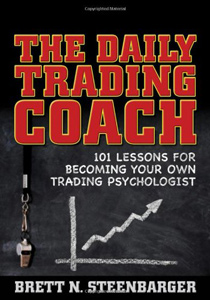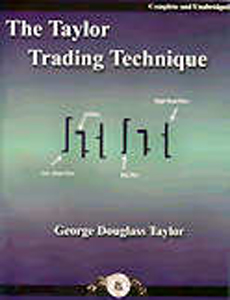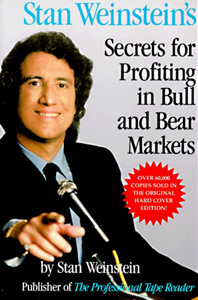The Essays of Warren Buffett
The definitive work concerning Warren Buffett and intelligent investment philosophy, this is a collection of Buffett's letters to the shareholders of Berkshire Hathaway written over the past few decades that together furnish an enormously valuable informal education. The letters distill in plain words all the basic principles of sound business practices.
They are arranged and introduced by a leading apostle of the "value" school and noted author, Lawrence Cunningham. In this The Essays of Warren Buffett : Lessons for Corporate America in one place are the priceless pearls of business and investment wisdom, woven into a delightful narrative on the major topics concerning both managers and investors. These timeless lessons are ever-more important in the current environment.
Positive Review of Book
At the 1998 Berkshire annual meeting, Buffett himself credited this book by saying it is better than all the other biographies and the best business investment book to read. Who could ignore such a high recommendation?
Having read several other books claiming to have captured and outlined Buffett's investment wizardry, I am excited to report that finally some one has done so beautifully. Cunningham distills and presents the Berkshire philosophy in a coherent and organized manner that puts it in a whole new light. This book is an excellent investment guidance source for everyone, from the novice to the more seasoned investor. You will find yourself dog-earing pages and underlining like crazy. Absolutely brilliant!
Negative Review of Book
you should not buy this collection of Warren Buffett's letters to investors. You should instead visit the Berkshire Hathaway website where all of these essays are available for free and invest the $22 in a good company following the principles outlined in these essays. If these essays were not so easily available, this collection would definitely be worth buying.
Author Biography
Buffett, the Bard of Omaha, is a genuine American folk hero, if folk heroes are allowed to build fortunes worth upward of $15 billion. He's great at homespun metaphor, but behind those catchy phrases is a reservoir of financial acumen that's generally considered the best of his generation.
For example, in an essay on CEO stock options, he writes, "Negotiating with one's self seldom produces a barroom brawl." This is his way of saying that an executive who can give himself compensation totally disproportionate to his performance surely will. There are uncountable gems of financial wisdom to be harvested from these essays, taken from the annual reports he writes for Berkshire Hathaway, his holding company.
Table of Contents
- Corporate Governance
- Owner-Related Business Principles
- Full and Fair Disclosure
- Boards and Managers
- The Anxieties of Plant Closings
- An Owner-Based Approach to Corporate Charity
- A Principled Approach to Executive Pay
- Corporate Finance and Investing
- Mr. Market
- Arbitrage
- Debunking Standard Dogma
- A Redundancy
- Intelligent Investing
- Cigar Butts and the Institutional Imperative
- Alternatives to Common Stock
- Junk Bonds
- Zero-Coupon Bonds
- Preferred Stock
- Unconventional Commitments
- Common Stock
- The Bane of Trading: Transaction Costs
- Attracting the Right Sort of Investor
- Dividend Policy and Share Repurchases
- Stock Splits and Trading Activity
- Shareholder Strategies
- Berkshire's Recapitalization
- Mergers and Acquisitions
- Bad Motives and High Prices
- Sensible Share Repurchases Versus Greenmail
- Leveraged Buyouts
- Sound Acquisition Policies
- On Selling One's Business
- Advantages in Acquisitions
- Accounting and Valuation
- A Satire on Accounting Shenanigans
- Look-Through Earnings
- Economic Goodwill Versus Accounting Goodwill
- Owner Earnings and the Cash Flow Fallacy
- Intrinsic Value, Book Value, and Market Price
- Aesop and Inefficient Bush Theory
- Accounting Policy and Tax Matters
- The Purchase-Pooling Debate
- Stock Options
- Restructuring Charges
- Segment Data and Consolidation
- Deferred Taxes
- Retiree Benefits
- Distribution of the Corporate Tax Burden
- Taxation and Investment Philosophy
Discover more Trading books at BookofTrading.com!
- How to Trade Forex and Gold Options
- How to Trade the Gold Price and Profit!
- Forex Trading the EUR/USD Pair € EURO and $ US Dollar
- How to Trade Stock Market Indices S&P500
- How to Trade Crude Oil
- Forex Trading Psychology
- What Are Broker Recommendations?
- Free Tickets to Trading & Investing Seminar & Expo ($18) Brisbane 2013
- Stock Calc App
- All About Warrants
- Introduction to Exchange Traded Funds
- Introduction to Exchange Traded Funds: Features
- Introduction to Exchange Traded Funds: Domestic ETFs
- Introduction to Exchange Traded Funds: International ETFs
- Exchange Traded Commodities
- Australian Stock Scan
- Australian Online Share Trading
- List of Trading Books
- Interesting Thoughts about the Australian Dollar
- What's the Meaning of Hawkish?
- Do You Know How To Use the P/E Ratio
- Trading, Religion and Politics - Do They Have Anything in Common?
- Shares that are Volatile that Double and Half in the Short Term
- Telstra (TLS) T3
- Margin Call by E-mail
- The Cost of Holding a Position
- Lack of Disclosure: Compensation from ASX Listed Company
- Unrealistic Returns and Benchmarks
- CMC Markets Down
- Quality versus Quantity Forex Trading
- Woolworths 1H Sales $30.7bn up 3.2%
Date added 31-01-2013 - ASIC Fines CommBank's CommSec
Date added 25-09-2012 - Industry Super Network Calls to Ban High Frequency Trading (HFT)
Date added 22-09-2012 - NAB Launches Online Share Trading Platform
Date added 19-09-2012 - Reserve Bank of Australia Says 23 Countries Holding AUD
Date added 18-09-2012 - Australia Post Digital Mailbox
Date added 10-09-2012 - Winners and Losers of Trading for Week 2
Date added 16-01-2012 - 2012's First Week of the Best and Worst Traded Stocks
Date added 09-01-2012 - 2011's Last Best and Worst Traded Stocks
Date added 05-01-2012 - Best and Worst Pre-Christmas Traded Stocks
Date added 30-12-2011 - Trading Winners and Losers for Dec. 12-16
Date added 19-12-2011 - Best and Worst Traded Stocks for Dec. 5-9
Date added 13-12-2011 - Top 3 Best and Worst Traded Stocks
Date added 05-12-2011 - ASX Glitch Trading Halt
Date added 27-10-2011 - Worst Trade Stocks (and the Best)
Date added 06-08-2011
Top 150 Public Companies Listed on the Australian Stockmarket as at 29/05/2009
- BHP Billiton
- Westpac Banking Corporation (WBC)
- Commonwealth Bank of Australia (CBA)
- National Australia Bank (NAB)
- Telstra (TLS)
- ANZ
- News Corporation (NWS)
- Woolworths Limited(WOW)
- Woodside Petroleum Limited (WPL)
- Rio Tinto
- Westfield Group (WDC)
- Westfarmers Limited (WES)
- QBE Insurance
- CSL
- Newcrest Mining Limited (NCM)
- Origin Energy Limited (ORG)
- Santos Limited (STO)
- AMP Limited (AMP)
- Macquarie Group (MQG)
- Foster’s Group Limited (FGL)





